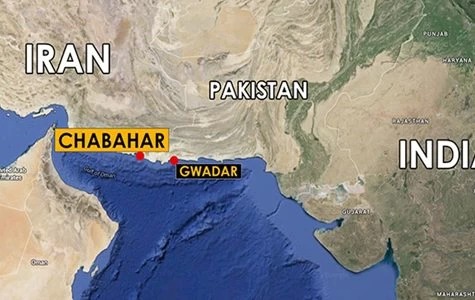Sea News – Report– In the Sea of Oman, there are two ports with significant economic potential and geopolitical importance: Gwadar in Pakistan and Chabahar in Iran. These two ports, often seen as rivals, have the potential to become complementary hubs of regional development, enhancing geopolitical stability through cooperation.
Gwadar, a key point in China’s “Silk Road Initiative,” and Chabahar, being developed with India’s assistance, are strategically positioned as gateways to Central Asia and other regions. Their geographical proximity places them in critical international transport corridors.
Rivalry or Partnership?
With its deep-water port, Gwadar can accommodate large ships and serve as an important transit hub. On the other hand, Chabahar offers a shorter route to Central Asia and Afghanistan, acting as an efficient alternative to traditional trade routes. Instead of competing, these two points can play complementary roles.
By cooperating, Pakistan and Iran can unlock the immense economic potential of these two ports and create a significant trade route that reduces logistical costs.
This cooperation can attract foreign investment, boost industrial growth, and create jobs that help elevate the local economy.
Furthermore, collaboration between Gwadar and Chabahar can enhance geopolitical stability. By working together, Pakistan and Iran can balance regional influences and reduce dependency on foreign powers. This partnership can pave the way for sustainable peace and progress in the region.
Additionally, increased connectivity between Gwadar and Chabahar can lead to cultural and social exchanges.
Challenges
However, several challenges exist. The partnership of China and India in Gwadar and Chabahar could lead to geopolitical rivalries that might complicate efforts to strengthen cooperation between the two ports. There is inherent competition for trade routes and investments, despite the potential for coordination. Both ports aim to attract similar markets, which might result in competitive strategies rather than cooperation.
The disparity in development levels between Gwadar and Chabahar could add to these challenges. Gwadar is still in the early stages of development, while Chabahar has more established infrastructure, which could create difficulties in synchronizing their operational capabilities.
Additionally, Pakistan and Iran have different maritime economic policies, making policy harmonization for facilitating cooperation a complex and time-consuming process.
Overall, the success of this cooperation depends on the political will of both countries. Overcoming these challenges requires the collective effort of all stakeholders. By embracing collaboration instead of competition, these ports can become twin engines of regional development, fostering economic growth, geopolitical stability, and environmental sustainability.

